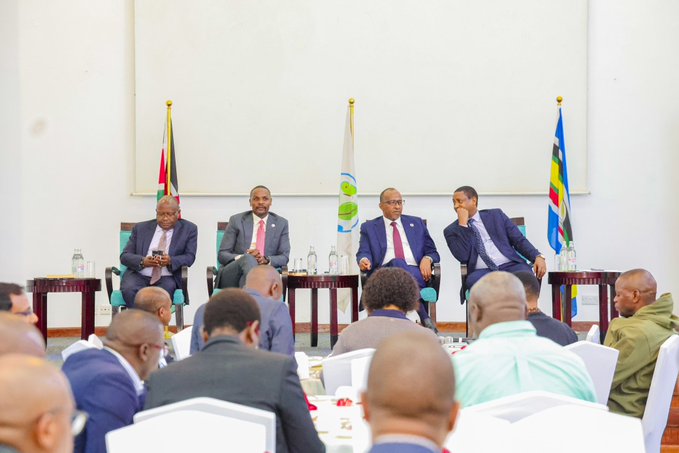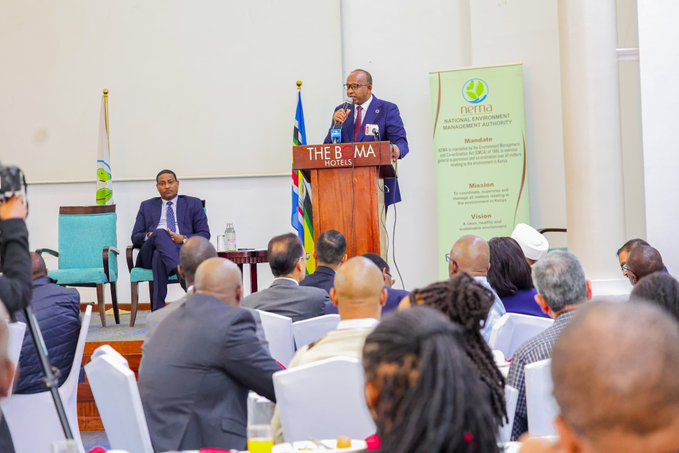Industries in Kenya have been urged to embrace Extended Producer Responsibility (EPR) policy to boost waste management efforts and combat pollution.
The clarion call was made at a critical meeting where industry leaders and producers engaged in discussion on the role of EPR in addressing pollution.
Ministry of Environment, Climate Change, and Forestry, led by Cabinet Secretary Aden Duale emphasised the necessity for producers to take responsibility for the waste generated from their products.
"Since most of this waste has labels from the producers, we expect EPR schemes to take their waste away for safe disposal," said CS Duale.
Extended Producer Responsibility (EPR) is a policy approach that assigns producers responsibility for the end-of-life of products. This can include both financial responsibility and operational responsibility.
Environment PS Festus Ngeno and NEMA officials, including Chairman Emilio Mugo and Director General Mamo B. Mamo, were present.
The meeting focused on how EPR schemes could support the ongoing efforts to clean up Nairobi’s rivers, particularly through logistical partnerships with local communities.
Duale noted that Section 13 of the Sustainable Waste Management (SWM) Act of 2022 mandates producers to implement EPR obligations to prevent environmental pollution.
He emphasized the need for companies to establish robust logistical systems that integrate local community groups for the collection, transportation, recycling, reuse, and safe disposal of waste.
"EPR schemes should sustain the cleanliness of the river," he added.
The meeting comes in the wake of the Climate Worx Resilience Service Programme, where over 10,000 youth have been engaged to remove waste from the Nairobi River.
CS Duale commended the National Environment Management Authority (NEMA) for enforcing the SWM Act, revealing that the agency has issued restoration orders to 145 companies whose branded waste was found polluting Nairobi’s rivers.
“In the unlikely event that the product continues to cause pollution, this will trigger the need for NEMA and the producers to engage in a discussion to ban that product or packaging. Therefore, EPR requires you to rethink the products you introduce into the Kenyan market to ensure they are safe,” CS Duale stated.
He also assured producers that the Extended Producer Responsibility Regulations (2024) would soon be gazetted.
NEMA Director General Mamo B. Mamo reiterated the importance of shifting away from Kenya’s previous linear waste management model, which focused on “take, make, dispose” practices.
This model, he said, contributed to littering, illegal dumpsites, resource wastage, and increased greenhouse gas emissions.
“NEMA has issued restoration orders to several companies due to evidence of their branded products’ waste leakage into Nairobi rivers. The first phase involved 29 companies, the second phase 85 companies, and the third phase 77 companies,” said Mamo.
The meeting was attended by representatives from key Producer Responsibility Organizations (PROs), including PAKPRO, KEPRO, HAPROK, and EPROK, all of whom play a vital role in ensuring sustainable waste management practices across industries.
Mamo called on citizens to contribute towards a clean and healthy environment, reminding them that "everyone has a responsibility to keep their surroundings clean."




 © The Star 2024. All rights reserved
© The Star 2024. All rights reserved